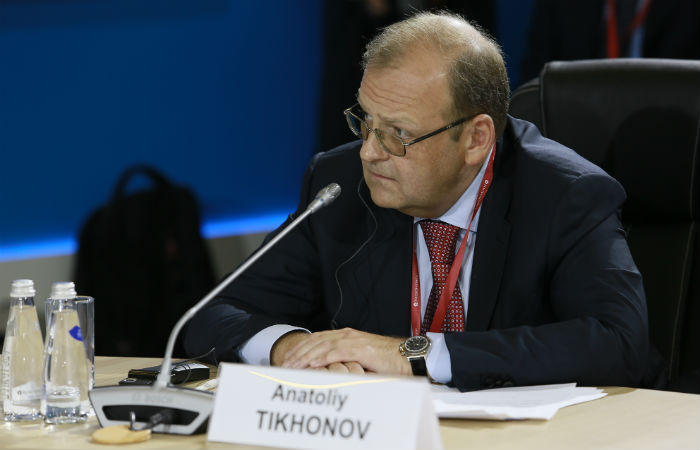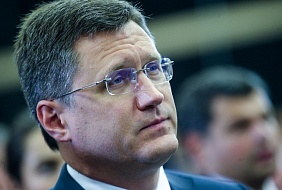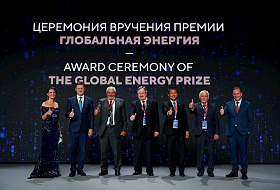October 12, 2022
Oil: Development Strategy
KEY CONCLUSIONS
Russia’s oil industry is developing steadily despite external challenges
“Russia has always been the world’s leader in hydrocarbon deposits. Now the country has about 3 thousand deposits of oil. <…> We are fully reproducing hydrocarbons every year,” Dmitry Tetenkin, Deputy Minister of Natural Resources and Environment of the Russian Federation.
“The industry is doing quite well this year in meeting all the challenges. This is due to the fact that we are actively assisted by friendly countries we have been working with for decades,” Daria Kozlova, Advisor to the Chief Executive Officer, Russian Energy Agency (REA) of the Ministry of Energy of Russia.
“Russia has been and remains a reliable energy supplier. This is a point that has been made many times before, but it does not make it any less relevant. We will continue to work with partners, with friendly countries, with all those who are willing to continue this interaction on a market basis. This is a large part of the world,” Pavel Sorokin, First Deputy Minister of Energy of the Russian Federation.
Russia’s financial sector has a positive outlook on investments in the mining industry
“Banks are well placed to actively finance the oil and gas sector. <...> We are now seeing demand for the yuan. <...> Since we are now moving to China, to the East, let’s switch to credits in RMB,” Alexander Vedyakhin, First Deputy Chairman of the Executive Board, Sberbank.
“We have managed to find a balance that allows us to be comfortable in the current situation. <...> We have production and refining reserves that can be maneuvered around if necessary,” Pavel Sorokin, First Deputy Minister of Energy of the Russian Federation.
PROBLEMS
Imperfect mining infrastructure
“The risks remain. There is an EU embargo on Russian oil and petrochemicals. <...> Our old problems remain... the deterioration of the mineral resource base. There is a need to go into new regions, there is a need to upgrade oil refining, which is quite difficult in the face of technological sanctions. <...> Exploration has been underinvested and now there is some difficulty in ramping up around the world: we see this trend both in OPEC countries and the US,” Daria Kozlova, Advisor to the Chief Executive Officer, Russian Energy Agency (REA) of the Ministry of Energy of Russia.
“Our resource base, confirmed by geological exploration in recent years, shows that Russia’s prospecting potential allows us to add at least 27 billion tonnes of profitable reserves [of hydrocarbons in equivalent fuel by 2050, – Ed.]. Of course, here we will strongly depend on the technology and the complexity of the fields. We know that in the process of additional exploration of the field, its development we face new challenges, and not only geological, but also technological,” Evgeny Petrov, Head, Federal Agency for Subsoil Use.
“We depend on technology and the government’s tax policy. We have set up a working group in the ministry and are developing approaches,” Dmitry Tetenkin, Deputy Minister of Natural Resources and Environment of the Russian Federation.
Unstable energy resource markets
“Due to the current market conditions, there are a lot of risks. Companies do not understand how things will unfold next year in terms of production volumes. It is clear that in the current environment, budgets will be slightly reformatted and exploration as one of the riskiest parts of oil companies’ business will suffer,” Daria Kozlova, Advisor to the Chief Executive Officer, Russian Energy Agency (REA) of the Ministry of Energy of Russia.
“It is premature to talk about extending the use of tax on additional income from hydrocarbon production. In today’s conditions, we can by no means allow the revenue base that we now have at traditional fields to be reduced,” Alexey Sazanov, State Secretary – Deputy Minister of Finance of the Russian Federation.
SOLUTIONS
Ther need to focus on scaling up subsoil use
“We... have sent a proposal to the Ministry of Natural Resources for 75 subsoil sites, which we believe should be transferred to subsoil users as early as 2022 without competition in order to create conditions for their preparation and transfer for oil production. According to estimates, the reserves [are] 160 mln tonnes and the resources are 730 mln tonnes. It is obvious... that we should take,” Natalya Komarova, Governor of Khanty‑Mansi Autonomous Area – Yugra.
“If we look at the projections that are relevant today... energy consumption will increase by 30% in 2050. Even though the share of fossil fuels will decrease from 83% to 63% in 2025, the absolute level of production will remain plus or minus the current level, and at least 35% more gas will need to be extracted. The question is: where to find these resources? The obvious answer is to increase exploration, create efficient technologies for extracting hard-to-recover reserves,” Evgeny Petrov, Head, Federal Agency for Subsoil Use.
Strengthening work on technology import substitution and alternative energy development
“This raises the question of technology availability. Here, the Ministry of Industry and Trade is already working actively with the industry to determine adequate industry demand. A scheme, a systematic approach to import substitution, in particular to refine the approach to import substitution, is being built. The issue is to further increase the level of processing. There are technologies from partner countries, and we are already working with the country’s leading institutes and companies on catalysts, control, and measuring equipment in order to substitute imported consumables,” Pavel Sorokin, First Deputy Minister of Energy of the Russian Federation.
“As far as alternative energy is concerned, one has to understand that humanity is not solving the problem of withdrawal from hydrocarbon resources. It is solving the problem of global warming. In that situation, everyone must understand their role in solving the climate problem. If you look at international companies, some of them, especially European companies, have switched to alternative energy,” Sergey Kudryashov, General Director, Zarubezhneft.
“Alternative energy requires huge amounts of critical minerals. It is assumed, for example, that wind energy will grow 43 times and solar energy 17 times. This requires the material base and minerals that will ensure the production of these technologies, which, in turn, will require an increase by several orders of magnitude in the extraction of practically the entire list of critical minerals. This means rapid growth in geological exploration, the creation of technologies for extracting components,” Evgeny Petrov, Head, Federal Agency for Subsoil Use.
For more information, visit the Roscongress Foundation’s Information and Analytical System roscongress.org and on the official Forum website rusenergyweek.com.





